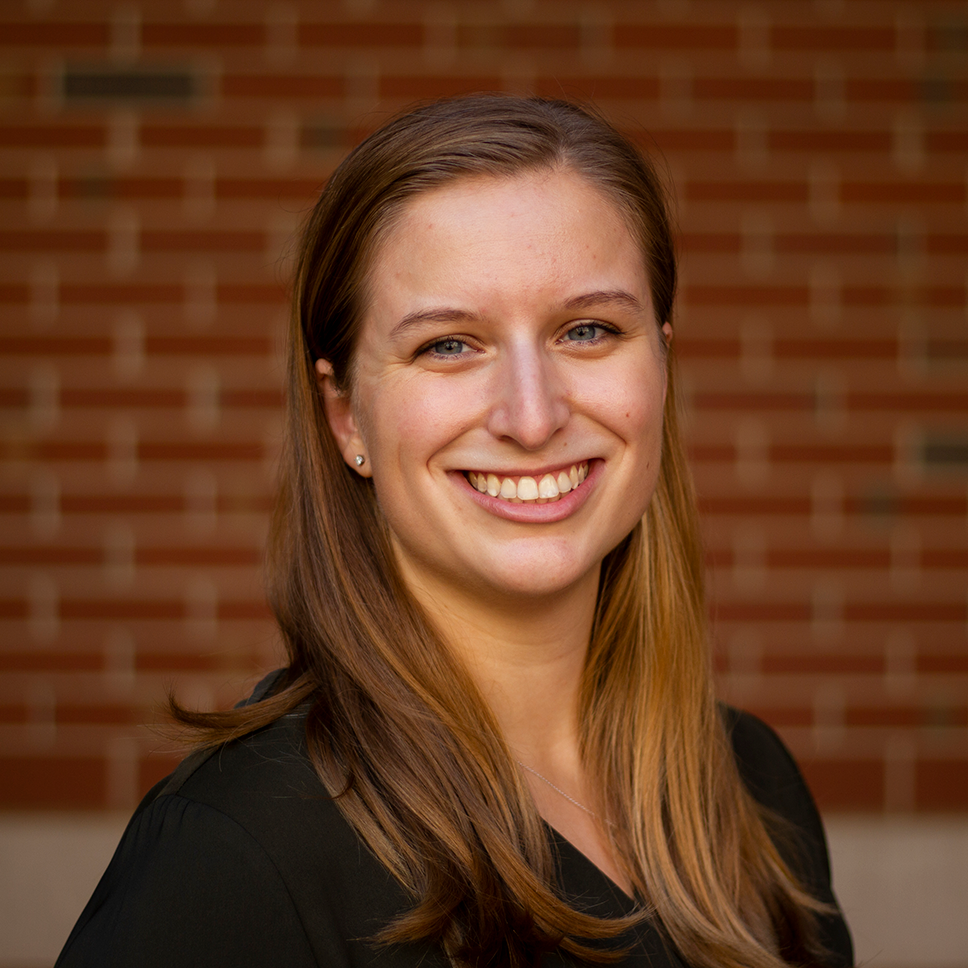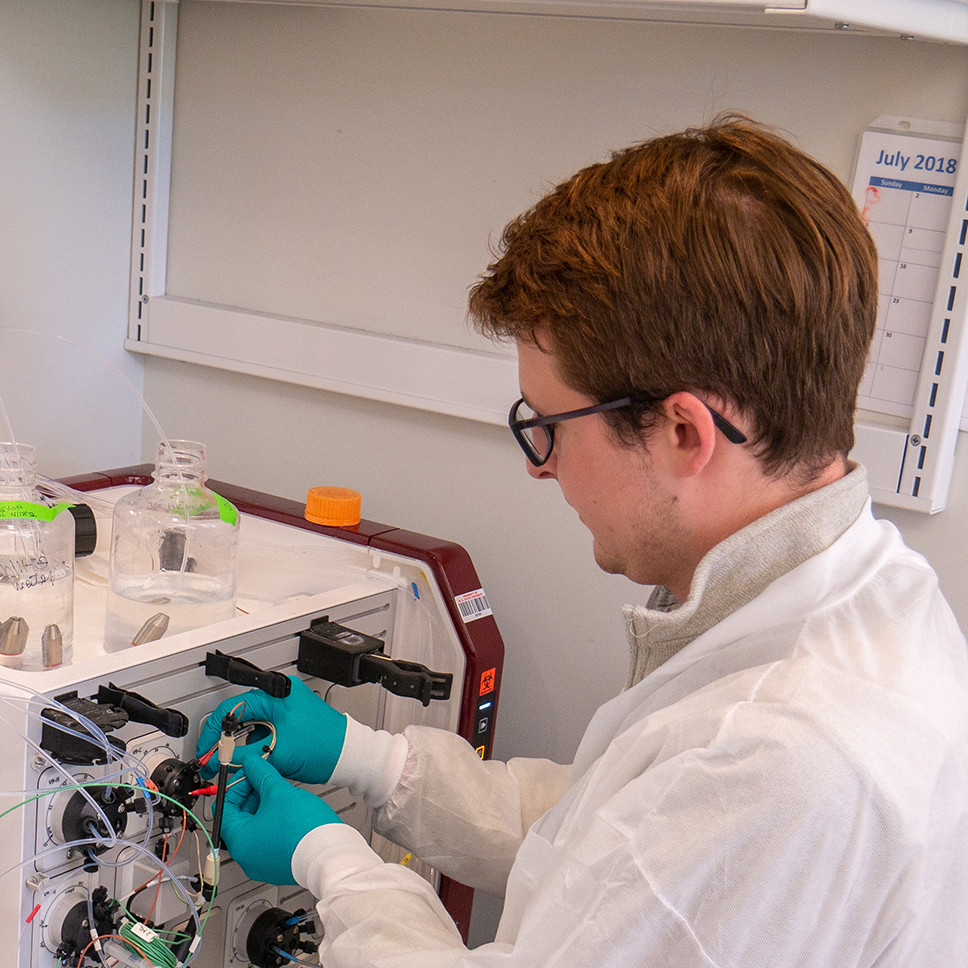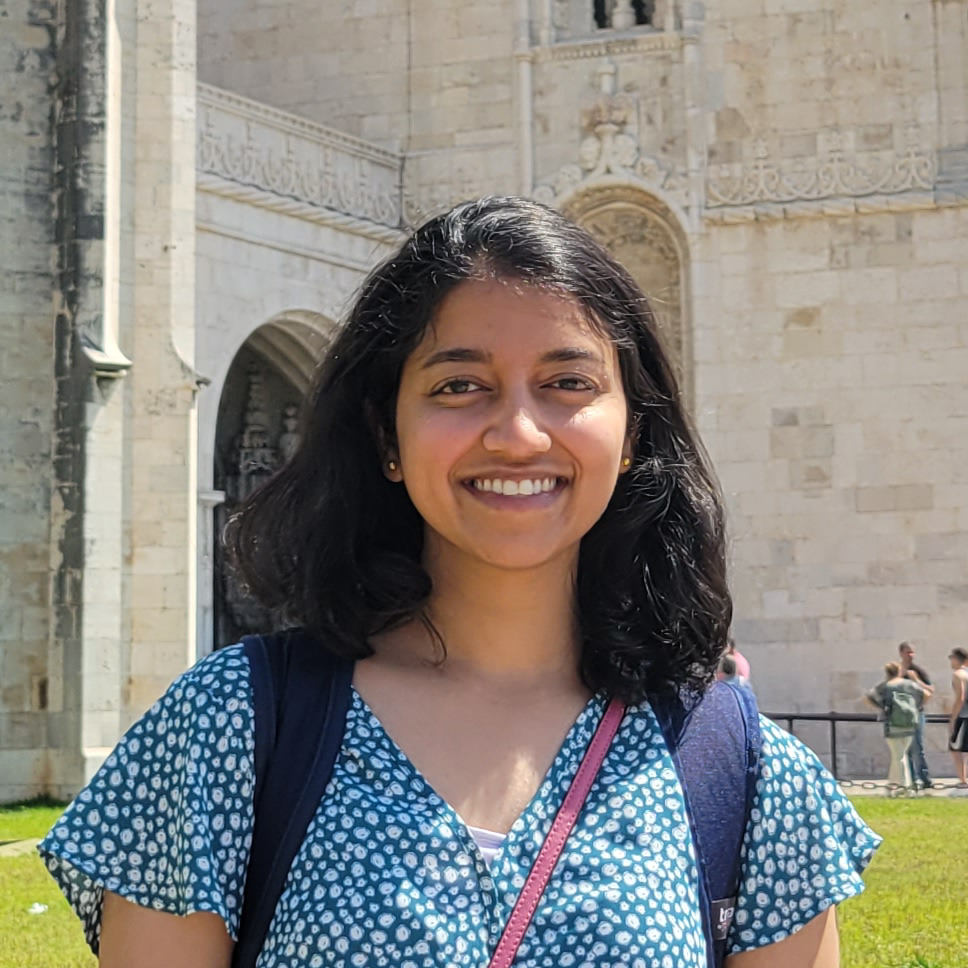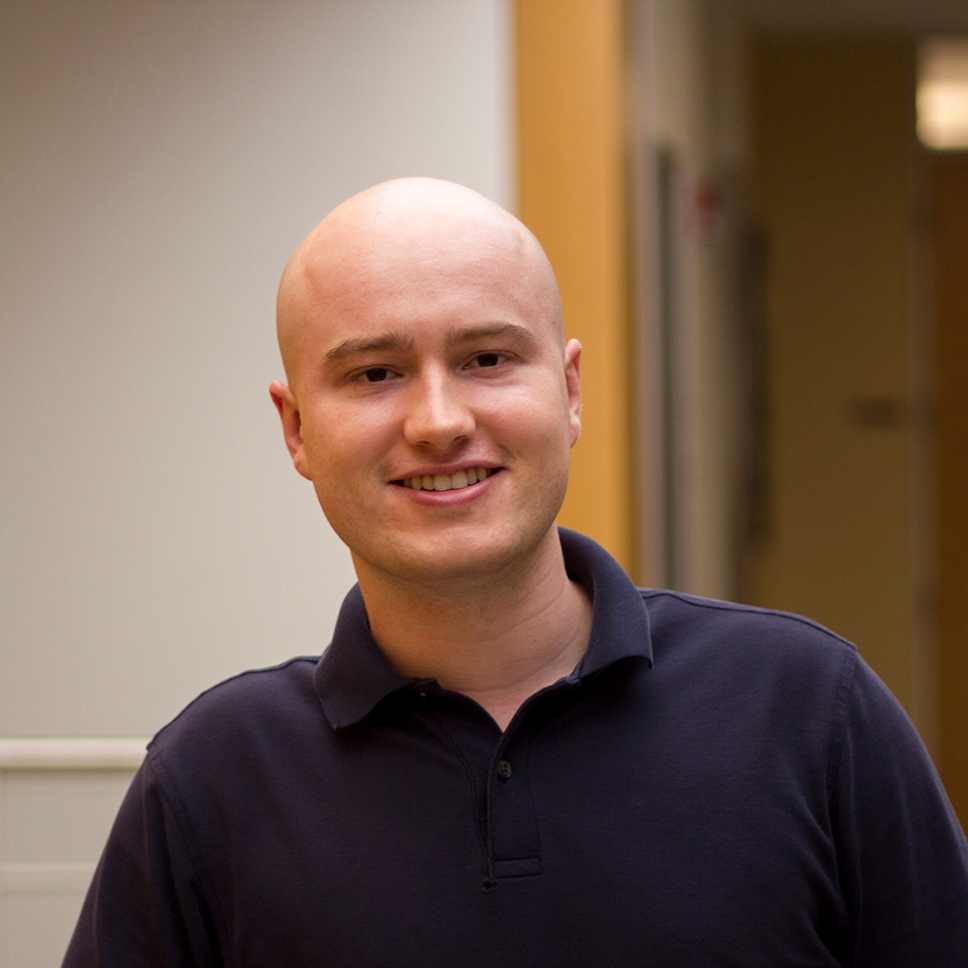
Beginning in April 2023, four NC State PhD students participating in the AIM-Bio exchange program have traveled to the Technical University of Denmark (DTU) for a six-month visit. The students, who are all pursuing doctorates in chemical engineering, are conducting research in the labs of Dr. John Woodley and Dr. Steffen Goletz. Learn more about the students and their research interests.

While at DTU, I will be working with Prof. Steffen Goletz, DTU Bioengineering, to discover novel nanobody inhibitors of C. difficile toxins. I will also be characterizing the binding affinity and inhibition mechanism of peptide inhibitors discovered at NC State and the nanobodies discovered at DTU. I will be harnessing unique single-domain antibody libraries developed in the Goletz lab and applying a new technique, flow-induced dispersion analysis, to perform liquid-phase binding studies.
Carly Catella
My PhD research focuses on the purification of therapeutic antibodies, with a particular emphasis on the separation of fragmented antibody subunits and other small process-related impurities from full-length monomeric antibodies. During my exchange at DTU Chemical and Biochemical Engineering, supervised by Professor John Woodley, I will assist in the development of a purification process for recombinant expressed or spiked antibodies in a Pichia pastoris fermentation culture operated in perfusion mode by implementing the technology that I have developed in my PhD at NC State.
Jacob LeBarre


I will be participating in the AIM-Bio exchange from April through September 2023. My primary appointment is with Professor John Woodley’s group in PROSYS, DTU Chemical Engineering, where I will be integrating host-cell protein binding technology we developed at NC State with the DTU research on enabling perfusion yeast cultures. I am also collaborating with Dr. Steffen Goletz’s group in DTU Bioengineering to validate and expand our purification technology across other mammalian cell lines through a brief project during this time.
Sobhana Sripada
In Professor John Woodley’s group at DTU Chemical and Biochemical Engineering, I will learn about upstream process development and how to operate a perfusion bioreactor system with Pichia Pastoris. I will directly interface with the perfusion system to develop a downstream protocol for IgG purification in collaboration with my NC State and DTU colleagues. I will test peptide-based affinity ligands, originally designed to purify Fabs and full length-antibodies from CHO-S fluid, to see how they perform in the isolation of IgG from P. Pastoris host cell proteins.
Ryan Kilgore
